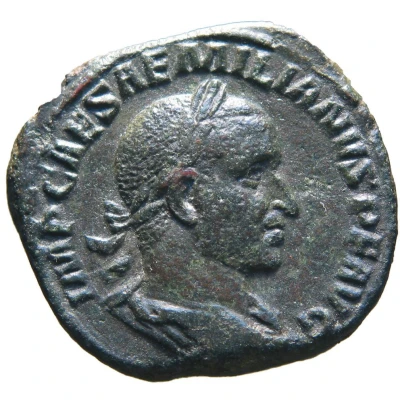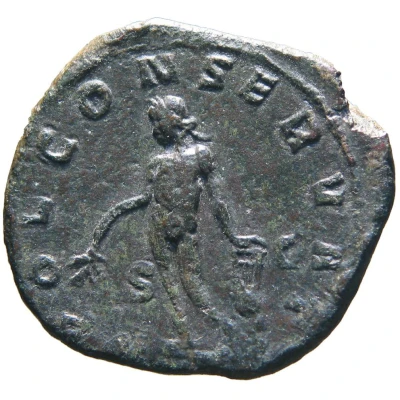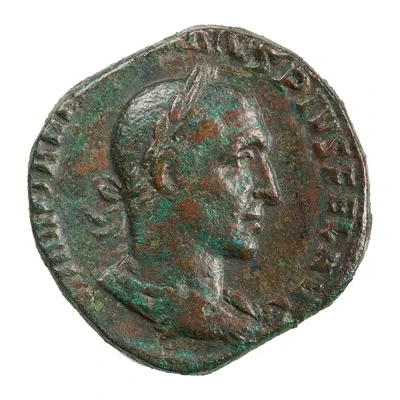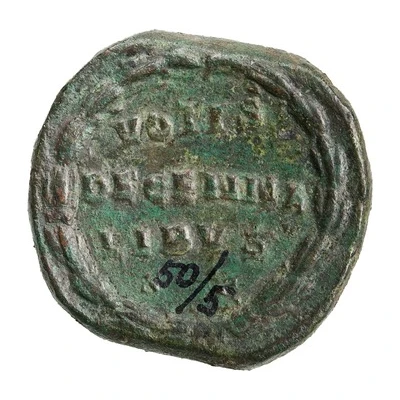


© Trustees of the British Museum
Sestertius - Aemilianus APOL CONSERVAT S C; Apollo
253 year| Bronze | 20 g | - |
| Issuer | Rome › Roman Empire (27 BC - 395 AD) |
|---|---|
| Emperor | Aemilianus (Marcus Aemilus Aemilianus) (253) |
| Type | Standard circulation coin |
| Year | 253 |
| Value | Sestertius (⅛) |
| Currency | Antoninianus, Reform of Caracalla (AD 215 – 301) |
| Composition | Bronze |
| Weight | 20 g |
| Shape | Round (irregular) |
| Technique | Hammered |
| Demonetized | Yes |
| Updated | 2024-10-05 |
| Numista | N#284721 |
|---|---|
| Rarity index | 100% |
Reverse
Apollo, nude, standing left, holding branch in right hand and resting left elbow on lyre set on rock.
Script: Latin
Lettering: APOL CONSERVAT S C
Translation:
Apollini Conservatori. Senatus Consultum.
Apollo the protector. Decree of the senate.
Comment
Example of this type:Trustees of the British Museum
Source:
Online Coins of the Roman Empire (OCRE)
Interesting fact
The Sestertius coin featuring Aemilianus (APOL CONSERVAT S C; Apollo) from the Roman Empire (27 BC - 395 AD) is interesting because it showcases the Roman Empire's use of Apollo, the Greek god of the sun, music, poetry, and prophecy, as a symbol of imperial power. The coin's design features a radiate crown on Apollo's head, which represents the sun and his association with it. Additionally, the coin's inscription, "APOL CONSERVAT S C," translates to "Apollo, protector of the state," highlighting the god's role as a protector and guardian of the Roman Empire. This coin is a prime example of how the Roman Empire used mythology and symbolism to reinforce their power and influence.

